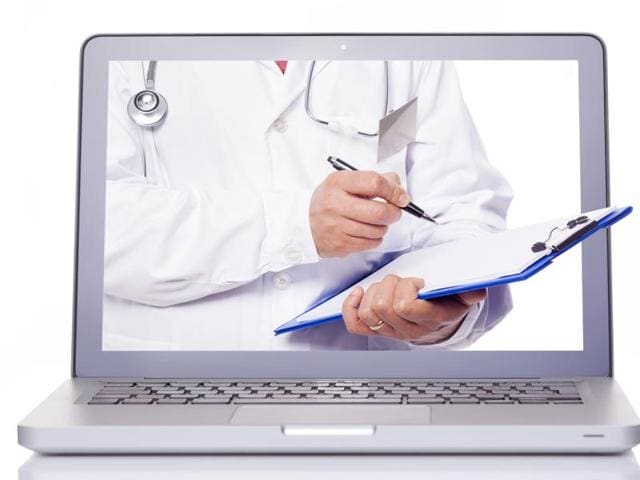Dr Google: Can you trust virtual diagnosis with your life?
How correct is virtual diagnosis? Can artificial intelligence outperform IRL (in real life) doctors in diagnostic accuracy?
How accurate are virtual diagnoses? Can artificial intelligence outperform IRL (in real life) doctors in diagnostic accuracy?

Not quite, concluded a study by researchers at Harvard Medical School last week. Their findings, published in JAMA Internal Medicine, revealed that doctors make a correct diagnosis more than twice as often as 23 commonly used symptom-checker apps.
Computer checklists and other idiot-proof apps are routinely used to reduce medical errors, evaluate diagnoses and streamline infection-prevention protocols in clinics and hospitals, but their increasing use outside hospitals by people with no medical training is a potential risk.
With algorithms taking health diagnosis to anyone with a smart device, millions are going online to self-diagnose before deciding whether they need a doctor at all.
And people seem to trust the online diagnosis implicitly. Almost half (47%) of more than 2,000 people surveyed in the UK said they had looked up their symptoms online before visiting a doctor; one-fifth said they had questioned their doctor’s diagnosis based on online information; and half would have preferred their doctor give them whatever prescription, treatment or referral they requested based on their self-diagnosis, reported the BMJ on Thursday.
Docs usually do know better
By insisting that your app knows best, you not only risk annoying the doctor on whose skills you are depending to restore your health, you are also risking your health itself. Human doctors know their job better than virtual ones, even though they are not always right. And doctors do dramatically better than algorithms when the diseases are rare, severe and more difficult to diagnose, with computers faring better with less acute and more common conditions.
Physicians, too, make diagnostic errors – not recognising symptoms, diagnosing later rather than sooner – 10% to 15% of the time, found the Harvard study that judged the skills of 234 internal medicine doctors on 45 clinical cases, involving both common and uncommon conditions.
For each case, doctors were asked to give the most likely diagnosis, and two additional possible diagnoses. Doctors made the correct diagnosis the first time, 72% of the time, compared with 34% for the digital platforms. Eighty-four percent of clinicians listed the correct diagnosis among the top three possibilities, compared with 51% for the digital symptom-checkers.
The Harvard study concludes that computer-based algorithms are best used along with human decision-making, to reduce diagnostic errors.
Symptom checkers
Online symptom-checkers also go wrong in triage advice, but they are better than phone triage services and Internet searches, found a study published in the BMJ last year. Symptom checkers hosted by medical schools (including Harvard Medical School), hospitals, insurance companies and government agencies (including the UK’s National Health Service) ask users to list their symptoms and use methods such as multiple choice checklists and free text entry to offer a list of potential illnesses that could cause the listed symptoms and suggest whether they need a doctor immediately, over the next few days, or whether the problem can be treated at home.
The BMJ review of 23 widely used symptom-checkers found that they provided correct triage advice in 58% of cases, with the checkers doing better in more critical cases, correctly recommending emergency care in 80% of urgent cases. In comparison, online search engines led to content that prescribed emergency medical treatment 64% of the time.
Diagnoses, however, varied across apps. Checkers with the most accurate diagnoses (Isabel, iTriage, Mayo Clinic, and Symcat) were not on the list of the programmes that did the best job of recommending the appropriate level of care for a given case (Healthychildren.org, Steps2Care and Symptify).

How to choose a doctor
So, if you want quick medical advice, where do you go?
Go to a symptom checker, but treat it as an enabling tool and not a clinician. Doctors bring experience, observation and physical examination into the equation, which leads them to the correct diagnosis more often.
It’s important to have a general physician who either lives near you or responds quickly to emergency texts or calls. Since house calls are not possible, you should be able to call him or her to guide you in an emergency. Make a list of your symptoms and the questions you want answered before calling, to save time.
Always mention your prescription medicines, surgeries and treatments you’ve undergone, and pre-existing conditions such as high blood pressure, diabetes or thyroid disorders. It helps if your general physician is attached to a multispecialty hospital so he can review your treatment course in case you need hospitalisation.
Catch your daily dose of Fashion, Health, Festivals, Travel, Relationship, Recipe and all the other Latest Lifestyle News on Hindustan Times Website and APPs.




